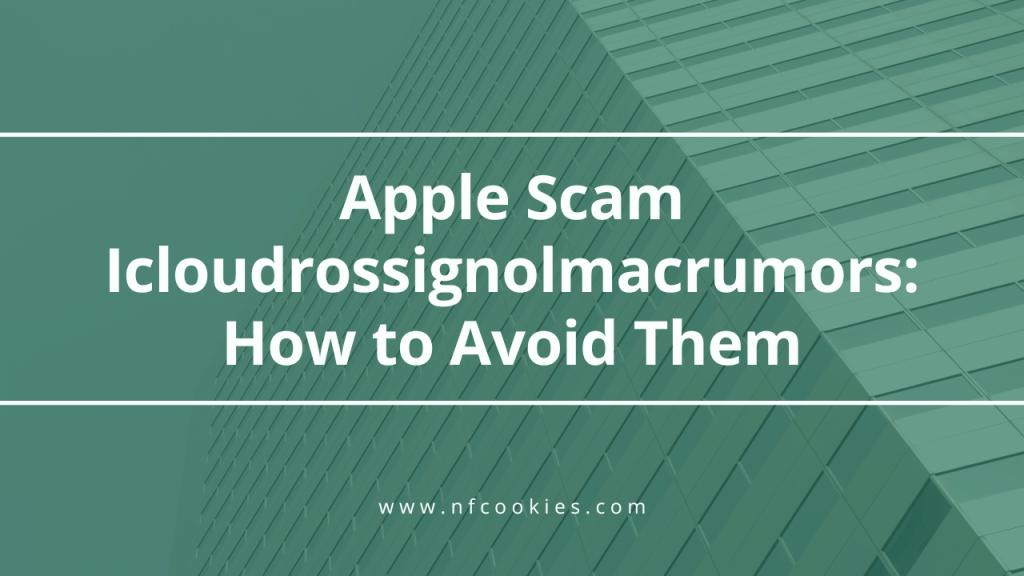
With the increasing popularity of Apple products comes the unfortunate rise of scams related to these products. Scams related to Apple products such as iCloud, Rossignol, and MacRumors are becoming more and more common. These scams can be annoying and costly, but the good news is that they are avoidable. In this article, we will cover how to spot and avoid Apple scams, and what to do if you believe you’ve been a victim of one.
How to Spot an Apple Scam

Common Signs of an Apple Scam
Apple scams come in many forms, from fake products being sold to malicious websites and emails claiming to be from Apple. It can be difficult to tell whether a product or offer is legitimate or not, so it’s important to look out for the telltale signs of an Apple scam.
The most common sign of an Apple scam is if the offer or product seems too good to be true. If the price is significantly lower than the regular market price, or the product claims to do something that Apple products don’t normally do, it’s likely to be a scam. It’s also important to be aware of any offers that require you to enter your Apple account details or that ask you to make a payment directly to the seller.
Red Flags to Look Out For
When it comes to spotting an Apple scam, there are a few key red flags to look out for. If the offer or product is being sold through an online marketplace such as eBay or Craigslist, be sure to check the seller’s reviews and feedback before making any purchases. It’s also important to look out for any emails or websites claiming to be from Apple, but that don’t use an official Apple domain. Finally, always be wary of any offers or products that require you to make a payment directly to the seller, as these are almost always scams.
How to Avoid an Apple Scam
Take Caution when Receiving Emails from Unknown Sources
Apple scams are increasingly common, and one of the best ways to avoid them is to take caution when receiving emails from unknown sources. It is important to be suspicious of any emails that claim to be from Apple or other tech companies, especially if they contain links or attachments. Always be sure to read a message carefully to determine if it is genuine. Additionally, be aware of any misspellings or grammatical errors, as these can indicate a scam.
Don’t Click on Suspicious Links
Another way to avoid Apple scams is to avoid clicking any suspicious links that appear in emails. These links can lead to malicious websites that can download malware to your device or steal your personal information. Instead, it is best to avoid clicking on any links in emails from unknown sources.
Don’t Give Away Personal Information
Finally, it is important to never give away personal information in response to an email from an unknown source. Scammers often ask for personal details such as passwords or credit card numbers. It is important to never provide this information. If you are ever in doubt, it is best to contact Apple directly to confirm the legitimacy of an email.
What to Do if You Have Been Scammed
Contact Apple Immediately
If you think you have been scammed, you should contact Apple immediately. It is important to report any suspicious activity as soon as possible. Apple’s customer service team is available 24/7 and can provide assistance with filing a claim and investigating the incident further. Apple can provide advice on what steps you should take next to protect your account, such as changing your password and updating any other details that may have been compromised.
Contact Your Bank or Credit Card Company
If you have paid for something that you believe to be fraudulent, you should contact your bank or credit card company immediately. They will be able to provide you with advice on how to dispute the charge or to initiate a refund. Your bank or credit card company may also be able to provide you with additional information about the transaction, such as the merchant’s contact details. It is important to keep all of your correspondence with your bank or credit card company in case you need to refer to it at a later date.
Report the Incident to the FTC
If you suspect you have been scammed, it is important to report it to the Federal Trade Commission (FTC). The FTC is a government agency that investigates and enforces consumer protection laws. You can report scams online or by calling their hotline. This will help the FTC keep track of the latest scams, so they can take action to help protect other consumers.
Conclusion
In conclusion, Apple scams are on the rise and it is important to stay vigilant and protect yourself from becoming a victim. Be sure to confirm the legitimacy of any communication from Apple. Monitor your iCloud, Apple ID and credit card statements for any suspicious activity. Additionally, never give out your personal information or passwords to anyone, under any circumstances. By following these simple steps, you can protect yourself from becoming a victim of an Apple scam.
Also Read: CEO BasecampLyons TheVerge: The Future of Business
Frequently Asked Questions
What is an Apple scam?
An Apple scam is a form of fraud that targets Apple customers, usually through email, text, or phone calls. These scams can involve everything from phishing for personal information to offering fake products or services.
What are some common signs of an Apple scam?
Common signs of an Apple scam include requests for personal information such as passwords, credit card numbers, or bank account numbers; a sense of urgency to act quickly; offers of free products or services; and requests to click on suspicious links.
How can I protect myself from Apple scams?
The best way to protect yourself from Apple scams is to be vigilant. Don’t open emails or click on links that look suspicious. Don’t provide personal information unless you’re absolutely sure you’re dealing with a legitimate business. And use two-factor authentication whenever possible to help protect your Apple ID.
What should I do if I think I’ve been scammed?
If you think you’ve been scammed, contact Apple Support immediately. They can help you reset your passwords, change your Apple ID, or report the fraud to the appropriate authorities.
Does Apple ever contact customers directly?
Yes, Apple does contact customers directly from time to time. However, they will never ask for personal information or payment over the phone or in an email. If you receive a suspicious call or email from someone claiming to be from Apple, it’s best to err on the side of caution and contact Apple Support.
Leave a Reply